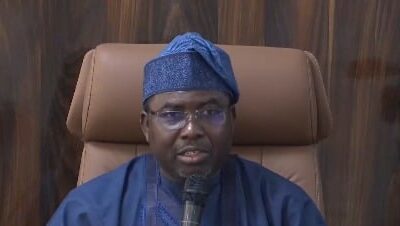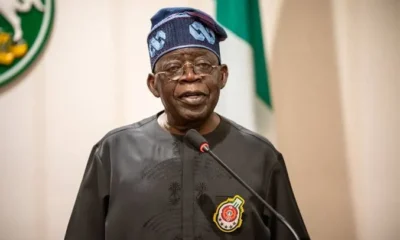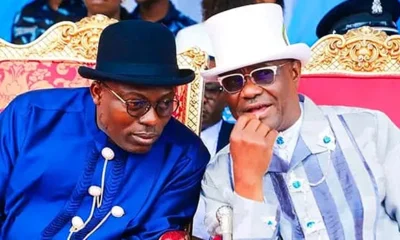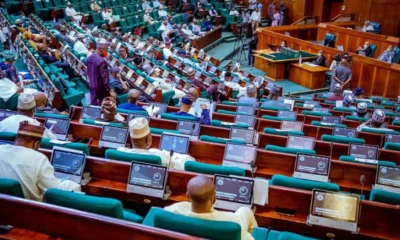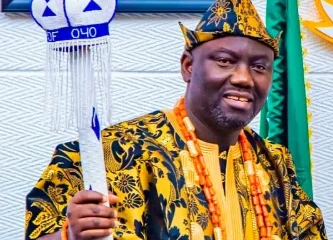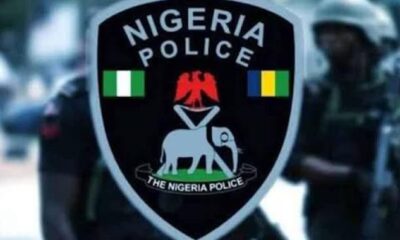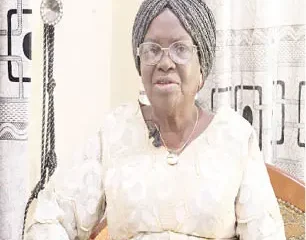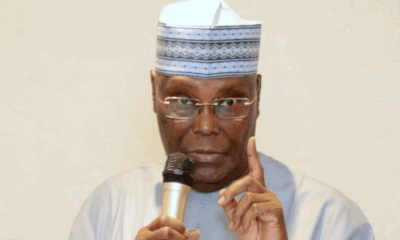Business
FBN vs GHL: Whistleblowers expose sole arbitrator as First Bank shareholder
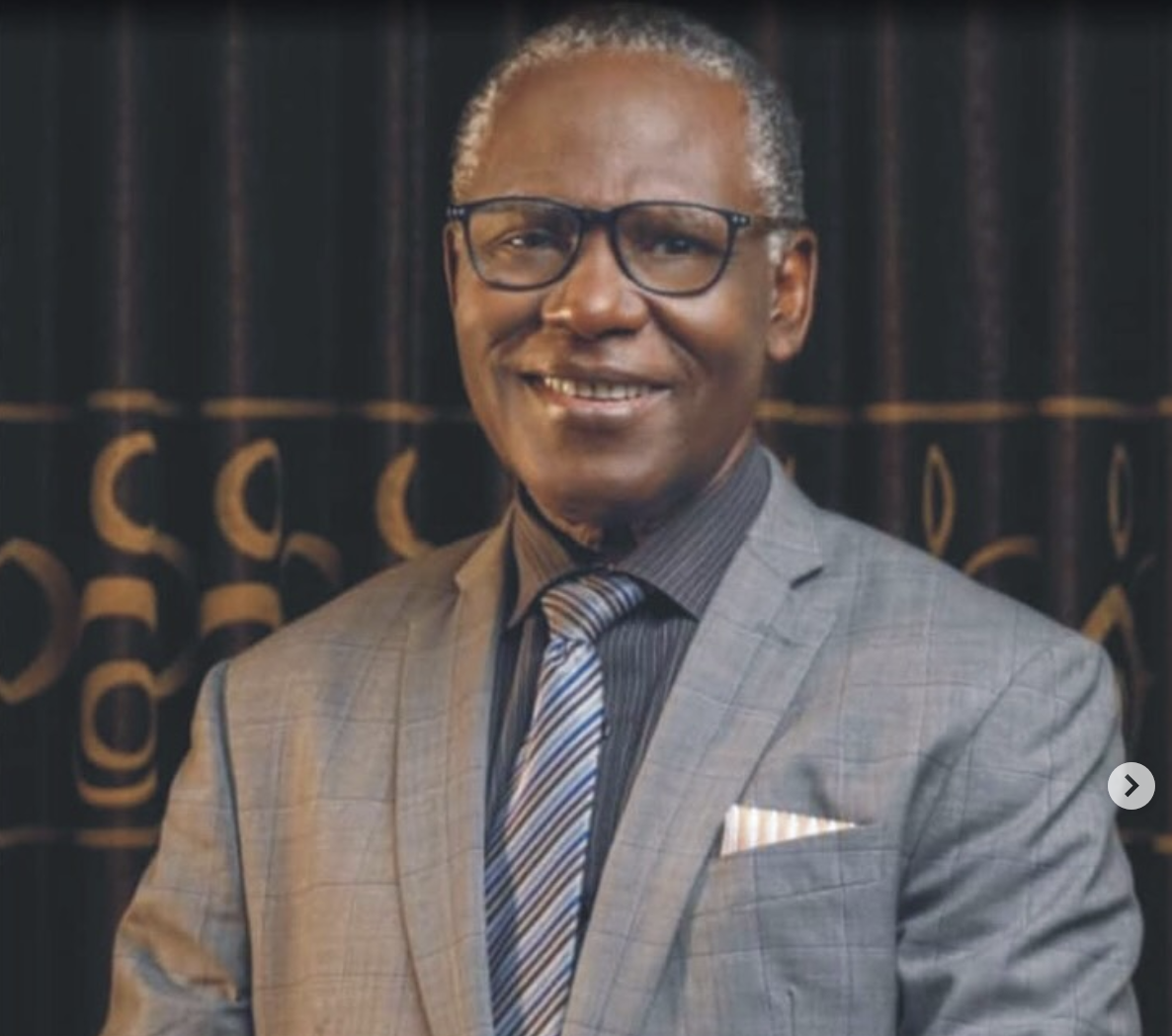
The last may not have been heard of First Bank of Nigeria’s (FBN) bid to take over the assets of General Hydrocarbons Limited (GHL), as fresh facts have revealed that retired Supreme Court Justice, Kumai Bayang Akaahs, who served as the Sole Arbitrator in the tribunal that dismissed GHL’s $718 million claim against First Bank, is a shareholder in the bank.
Legal experts say that if established, the allegation could lead to the setting aside of the award under the Arbitration and Conciliation Act (ACA) of Nigeria.
Akaahs had recently dismissed GHL’s case on the grounds that the oil firm failed to prove its allegations of breach against the bank.
However, whistleblowers in Nigeria’s stock market have alleged that Akaahs, who was the sole arbitrator at the tribunal, violated the law and public policy by failing to disclose his interest in First HoldCo Plc, the parent company of FBN.
The “Stock Market Whistleblowers,” in a statement issued yesterday, claimed that the retired Supreme Court Justice owns 595,057 units of shares in First HoldCo Plc, a situation they say created a conflict of interest, given that he acted as arbitrator in a case involving a company in which he is a shareholder.
The whistleblowers, who identified themselves as stockbrokers licensed by the Securities and Exchange Commission (SEC), a parastatal under the Federal Ministry of Finance, said they were making the revelation to aid the fight against misconduct in Nigeria’s stock exchanges and to ensure market integrity.
“With the above preamble, we make the following statements to be released to the Nigerian media to ensure openness, transparency and full investigations,” they said, urging journalists to undertake independent investigations of their assertions.
“As stockbrokers, we are privy to the transactions of Justice Kumai Bayang Akaahs (JSC,(retd), especially as it relates to his shares in First HoldCo Plc, where First Bank of Nigeria Limited is the main subsidiary.
“We are aware and hereby report that on April 7, 2025, he purchased 148,888 units of shares of First HoldCo Plc, bringing his total holdings to 595,057 units,” the statement read.
They further disclosed that, in addition to First HoldCo Plc, Akaahs holds shares across the banking, telecoms and other sectors of the Nigerian economy.
They listed his holdings to include: Daar Communications Plc – 50,000 units; Dangote Sugar Refinery Plc – 12,000 units; Dunlop Nigeria Plc – 50,000 units; Ecobank Transnational Incorporated (ETI) – 6,890 units; Guaranty Trust Holding Company Plc (GTCO) – 80,083 units; MTN Nigeria Communications Plc – 120,250 units; United Bank for Africa (UBA) – 160,650 units; Lafarge Africa Plc – 14,723 units; and Zenith Bank Plc – 60,937 units.
The whistleblowers questioned how an active shareholder and member of First HoldCo Plc could serve as Sole Arbitrator in a matter involving FBN, “a company in which he holds significant shares, without disclosure and without recusing himself.” They added that “a reading of the entire arbitration award shows that his shareholding in FBN HoldCo — his largest stockholding — was not disclosed,” and they called for a full and comprehensive investigation.
According to them, Akaahs was appointed arbitrator in February 2025.
“From his appointment in February 2025, the arbitration ran up to October 28, 2025, when he delivered his final award.
“We are people of conscience seeking justice and integrity.
“We provide the following evidence to investigators to ascertain the truth:
i. Table of all Justice Akaahs’ shares on the Stock Exchange
ii. Table of Justice Akaahs’ FBN HoldCo Plc stock holdings
iii. Table of Justice Akaahs’ last transaction and date of transaction.
“We will provide more information to the media and the courts in the advancement of truth and justice,” the statement added.
The ACA requires an arbitrator to disclose any circumstances that may give rise to justifiable doubts as to their impartiality or independence, both at the point of appointment and throughout the proceedings.
It was also gathered that a court may set aside an award if a party proves that the award conflicts with the public policy of Nigeria. An arbitrator’s failure to disclose a conflict is seen as a key basis for arguing that an award violates public policy, or that a party was unable to properly present its case.
If an arbitrator fails to disclose a conflict, a court may conclude that the arbitration was unfair — which could be sufficient grounds to set aside the award on the basis that the arbitrator’s impartiality was compromised.
Such non-disclosure is viewed as a breach of the integrity of the arbitration process, often considered a violation of Nigeria’s public policy and a valid ground for challenging an award.
Failure to disclose a conflict may also mean the affected party was denied the right to a fair hearing, as confidence in the arbitrator’s neutrality would have been undermined, a potentially fatal flaw for the arbitral award. (The Sun)
-

 News14 hours ago
News14 hours agoINEC faces backlash over 2027 election dates coinciding with Ramadan
-

 News13 hours ago
News13 hours agoConfusion hits trial of suspected coup plotters
-

 Politics13 hours ago
Politics13 hours ago‘Wike discovered me’ – Fubara dedicates award to FCT minister
-

 News10 hours ago
News10 hours agoReps To Hold Emergency Session Over INEC’s 2027 Election Timetable
-

 News13 hours ago
News13 hours agoAlaafin mum as Makinde crowns 14 Oyo chiefs
-

 Metro13 hours ago
Metro13 hours agoMan kills brother over accusation of blocking success
-

 News13 hours ago
News13 hours agoThe Future Of Medicine In Nigeria Is Private – Dr Maryam Dija Ogebe
-

 Politics13 hours ago
Politics13 hours agoCan A Commission Struggling With Proper Timing Conduct Credible Elections? – Atiku



